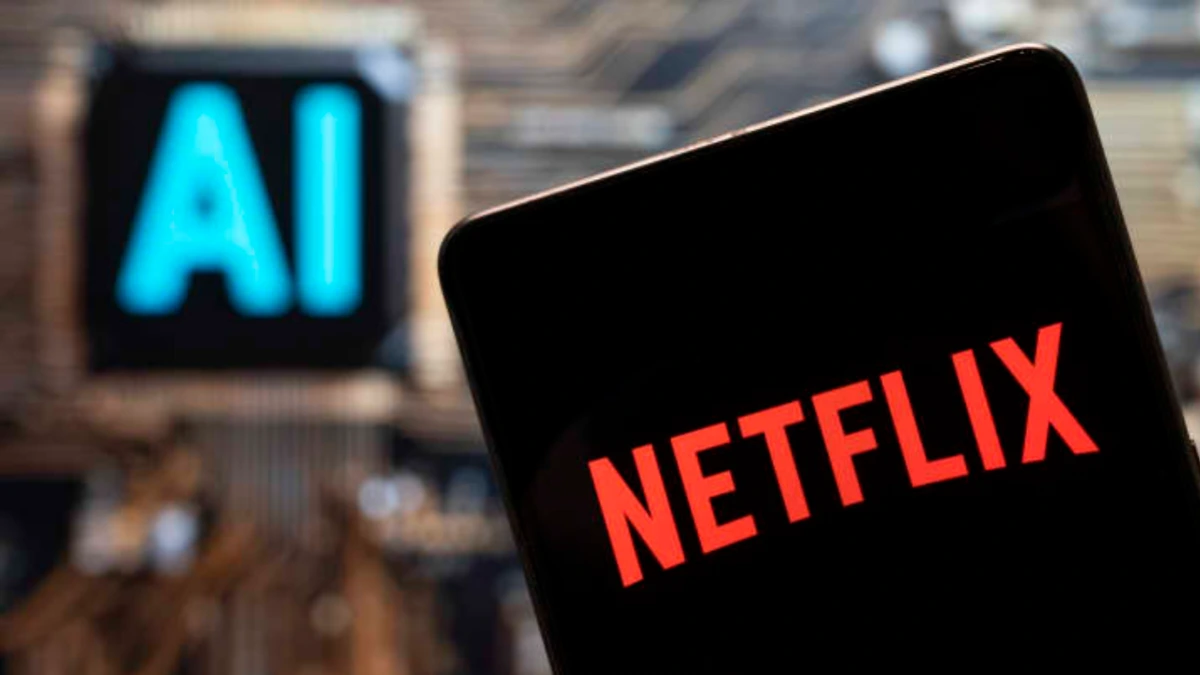LOS ANGELES, (TECHY QUANTUM) — Netflix has released comprehensive guidelines for using artificial intelligence in film and television production, reflecting the streaming platform’s effort to integrate technology responsibly while protecting human creativity.
The move highlights the growing role of AI in entertainment and follows recent industry labor disputes surrounding digital replication of performers.
“AI offers exciting opportunities to enhance storytelling, but creators must use it ethically,” a Netflix spokesperson said. “Our guidelines provide clarity and help safeguard the rights of talent while enabling innovation.”
Generative AI, often called GenAI, has become increasingly prominent in the entertainment industry, capable of producing scripts, visual effects, and other media content. Netflix’s guidance, titled Using Generative AI in Content Production, establishes rules to ensure ethical application.
It explicitly prohibits AI generated content that copies copyrighted material, reproduces a performer’s likeness without consent, or misleads audiences about the human involvement in creative work.
The guidelines emerge in the wake of a major labor action by the Screen Actors Guild American Federation of Television and Radio Artists (SAG-AFTRA).
In 2023, actors and other entertainment professionals went on strike for over 100 days to address concerns about AI replicating performers digitally without permission or fair compensation.
The strike concluded with a tentative agreement that, for the first time, included contractual protections addressing AI use in film and television production.
“Ensuring that performers’ work is respected is central to responsible AI use,” SAG AFTRA representative Carla Jenkins said. “The new protections reflect the union’s commitment to balancing innovation with labor rights.”
Netflix’s guidelines outline five core principles, including transparency, consent, copyright compliance, fairness, and accountability.
Production teams are required to disclose AI usage to Netflix contacts, explaining how AI contributes to the creative process. Co CEO Ted Sarandos highlighted the benefits of AI tools in recent projects.
“We’ve seen AI help teams achieve high quality visual effects efficiently,” Sarandos said. “These technologies allow creators to experiment creatively without undermining human talent.”
For instance, the Argentine sci-fi series The Eternaut incorporated AI in visual effects, including digitally simulated cityscape destruction.
This approach enabled the production team to achieve complex scenes faster and more cost effectively, illustrating AI’s practical benefits when used under ethical guidelines.
Media experts have generally welcomed Netflix AI guidelines as a critical step toward industry-wide standards. Dr. Emily Carter, a professor of media studies at the University of Southern California, said, “Netflix’s framework provides a clear precedent for ethical AI use.
It demonstrates that technology can complement human creativity rather than replace it.” Technology policy analysts caution, however, that the rapid pace of AI innovation may require ongoing oversight.
John Mitchell of the Center for Digital Ethics said, “Guidelines are important, but constant monitoring and adaptation will be essential to prevent misuse and protect creative professionals.”
Industry analysts note that Netflix’s proactive approach may influence other studios and streaming platforms. According to a recent survey by the Entertainment Technology Research Council, nearly 70 percent of major studios have experimented with AI in visual effects or post production.
But few have formalized ethical guidelines as Netflix has. Filmmakers and production staff have expressed cautious optimism about the new AI guidance.
Ana Torres, a Los Angeles based visual effects coordinator, said, “Clear rules reduce uncertainty. We can explore creative applications of AI while knowing what is acceptable.”
Actors and performers have also welcomed the protections introduced after the SAG AFTRA strike. Michael Reyes, a television actor, said, “The strike showed the risks of uncontrolled AI use.
Netflix’s guidelines are promising, but proper enforcement will determine their real impact.” As AI tools continue to evolve, their role in entertainment production is likely to expand.
Netflix AI guidelines may set an industry benchmark, influencing how studios approach AI integration and establishing practices for transparency, consent, and accountability.
Experts predict that collaboration between studios, technology providers, unions, and policymakers will be critical. This collaboration could shape future regulations, protect creative labor, and maintain audience trust, particularly as AI becomes more sophisticated and capable of creating realistic digital performances.
The expansion of AI in entertainment also raises questions about copyright law, performer rights, and long term economic effects on creative labor.
Netflix’s approach may help address these challenges by providing a structured framework for ethical AI use. Netflix’s introduction of AI production guidelines marks a pivotal moment for the entertainment industry.
By establishing clear ethical principles and emphasizing transparency, the company seeks to ensure that AI enhances storytelling rather than replacing human creativity.
The evolving landscape of AI in entertainment will require continued dialogue among creators, unions, and technology providers to maintain ethical standards.
Netflix AI guidelines may serve as a model for responsible innovation, ensuring that the creative process remains protected while the industry embraces new technological possibilities.
